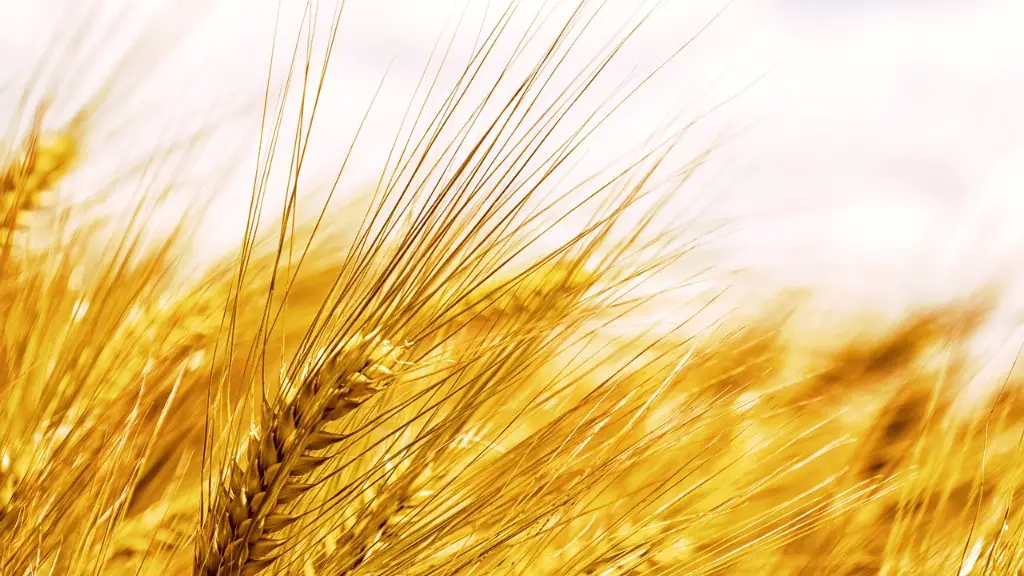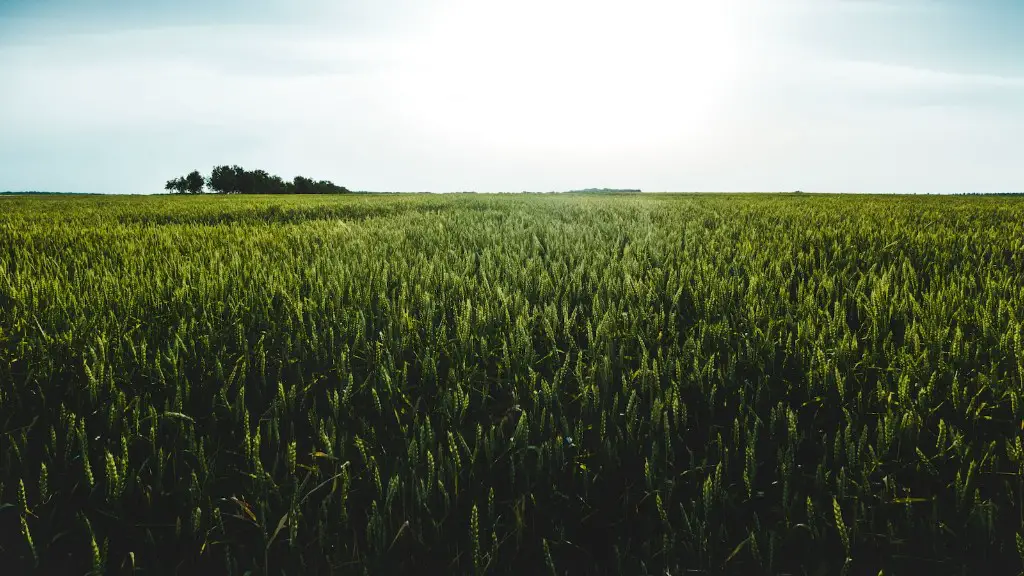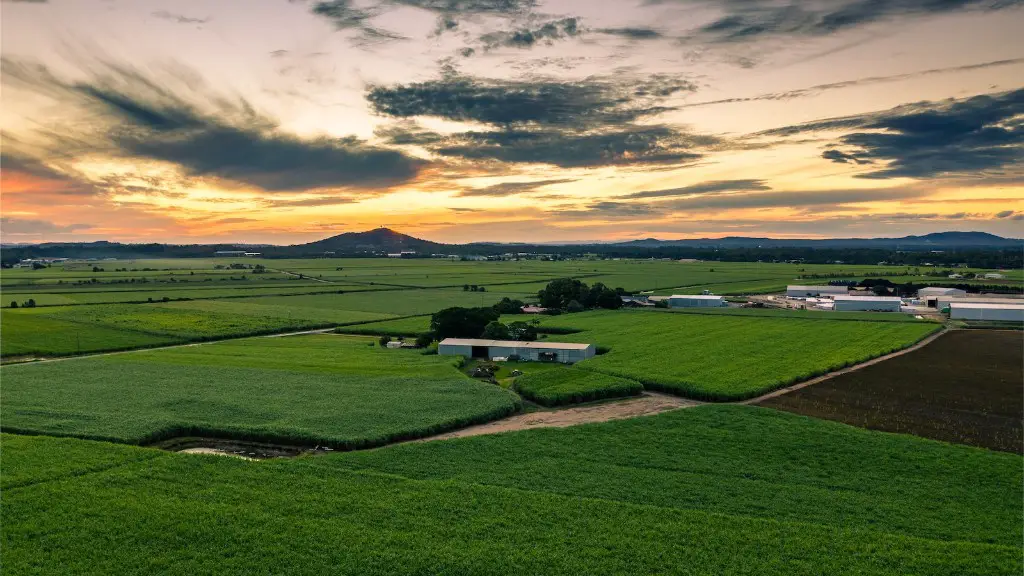Agriculture has been around for centuries and it is still going strong today. It is a vital part of our economy and provides food for millions of people around the world. But does agriculture require maths?
The short answer is yes. In order to be successful in agriculture, you need to be able to understand and use basic mathematical concepts. This includes things like addition, subtraction, multiplication, and division. You also need to be able to understand and use basic concepts in geometry and trigonometry.
without a strong foundation in maths, it would be difficult to accurately measure things like land area, crop yields, and irrigation rates. You would also struggle to effectively plan and budget for your farming operation.
So, while you may not need to be a maths genius to be a successful farmer, a basic understanding of maths is essential.
Yes, agriculture does require maths. Farmers and agricultural scientists use maths to measure things like land, crop yields, and livestock populations. They also use maths to calculate the amount of water, seeds, and fertilizers needed for crops, and to figure out the best time to plant and harvest them.
Does agriculture involve math?
Farmers use math every day to help them with their work. They use math to determine the amount of seed they need to plant their crop and how much it will cost. They use math to decide what tractors and equipment to purchase and make payments. Math is a very important tool for farmers and they use it every day to help them with their work.
The agriculture major is not particularly hard. Definitely, it’s not as challenging as STEM and healthcare majors. But since it’s an interdisciplinary field, encompassing anything from biology, chemistry, economics to marketing, agriculture majors have to study very well in order to earn a bachelor’s degree.
Which subject is best for agriculture
Agriculture courses are highly interdisciplinary, requiring students to have a good grasp of both natural sciences and social sciences, and drawing on areas such as biology, environmental sciences, chemistry, economics and business and management.
This makes them ideal for students who are looking for a broad-based education that will prepare them for a wide range of careers in the agriculture sector.
The courses typically cover topics such as crop science, soil science, animal science, agricultural economics, agronomy, food science and technology, and horticulture.
Farming is a unique industry that relies heavily on the use of proportions to convert between various units of measurement. Land is typically measured in acres, for example, while other industries may use square footage or other units of measurement. This can make it difficult for those outside of the farming industry to understand the measurements used. However, by using proportions, we can easily convert between the different units of measurement to get a better understanding of the size and scope of the farm.
Is studying agriculture easy?
No, the BSc in agriculture is not a difficult course to study. The majority of the course is focused on practical applications, so students should not find it too challenging.
Maths is not a compulsory subject for BSc Agriculture. However, Biology is a mandatory subject to pursue BSc in Agriculture.
Is it worth going to college for agriculture?
There are many reasons why becoming an agriculturalist can be beneficial. For one, you would have a more in-depth understanding of the subject matter and could be more efficient in your work. Secondly, a degree in agriculture can also help you to land other jobs in the industry, such as management or sales. And lastly, agriculturalists typically enjoy high job satisfaction rates and earn good salaries. So if you’re interested in pursuing a career in agriculture, definitely consider getting a degree in the field.
There are a lot of different opinions out there about which college majors are the most difficult. However, most experts seem to agree that the hardest majors tend to be in the STEM fields (science, technology, engineering, and math).
Some of the most difficult majors include chemistry, environmental economics and policy, environmental earth science, American studies, nuclear engineering, energy engineering, astrophysics, and applied mathematics. These majors are not only challenging academically, but they also require a lot of time and effort outside of the classroom.
If you’re looking for a real challenge, these are the majors you should consider!
What is the easiest course in college
There are a few things to consider when choosing a college major, and each person’s situation is unique. However, some majors tend to be easier than others, and this list includes some of the easiest college majors for 2023. If you’re looking for a major that will be relatively easy to study and won’t require excessive amounts of work, then any of these majors could be a good option for you.
The highest paying jobs in agriculture are those that require a higher level of education and/or experience, such as agricultural engineers, agronomists, and veterinarians. Farm managers and agricultural sales representatives also tend to earn relatively high salaries.
Is agriculture a good career?
Agriculture is a vast sector which offers a multitude of job opportunities for engineers. Agricultural engineers apply their engineering knowledge and skills to solve problems related to agricultural production and processing. They develop and design new equipment and methods to improve the efficiency of agricultural operations. They also work to protect the environment and natural resources.
In both agriculture and livestock husbandry, math is an essential tool for calculating crop and pasture yields, as well as determining appropriate fertilizer and feed ratios. Without a basic understanding of math, it would be difficult to produce food and raising animals effectively. In short, math is a critical part of modern farming and ranching.
What is taught in agriculture
Agricultural education provides students with the opportunity to learn about the agricultural sector, food production and natural resource management. Agricultural educators teach a wide variety of skills to their students, including science, mathematics, communications, leadership and technology. This type of education is essential in preparing young people for careers in the agricultural industry.
Mathematics has always been an important part of farming. It is used to estimate the amount of land that can be cultivated, the number of crops that can be grown, and the amount of water and fertilizer required. math also helps farmers to calculate their profits and losses.
Does agriculture make good money?
The Agriculture industry offers many high-paying jobs, with some positions paying up to $100,000 per year. Agriculture science and engineering careers focus on soil, plant life cycles, irrigation, or farm machinery. You could also work in this industry as a livestock veterinarian. There are many opportunities for advancement and high salaries in the Agriculture industry. If you are interested in a career in this field, research the different options and find the best fit for you.
The length of agricultural studies depends on the university you choose to enroll in But, typically, you can expect to get a bachelor’s within 3 years and a master’s within ½ to 2 years, whereas for the most ambitious ones, a Ph D title can be acquired within 2-4 years.
However, the most important factor in deciding how long your agricultural studies will take is you. How quickly you are able to grasp the material and put it into practice will play the largest role in determining the amount of time it takes you to complete your agricultural studies.
Final Words
No, agriculture does not require maths.
While there are many aspects of agriculture that do not require maths, there are many aspects of agriculture that cannot be managed without a strong understanding of numbers. Crop rotation, irrigation, planting, and yield all require the farmer to be able to do basic maths in order to be successful. For this reason, we can say that while agriculture does not strictly require maths, a strong understanding of numbers is essential for success in this field.





